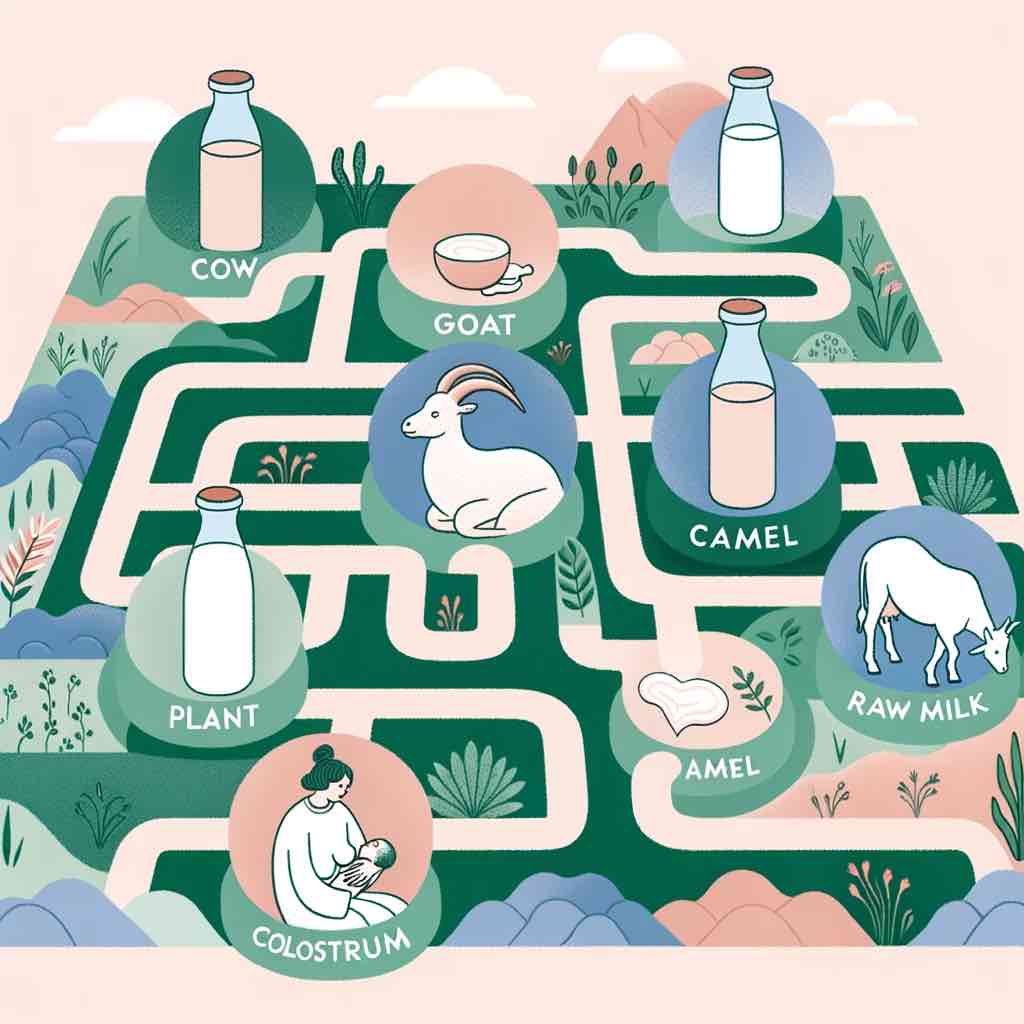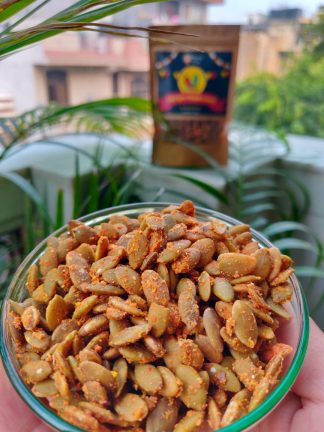
Introduction
Eczema, a prevalent skin ailment known for its itchy, red, and dry skin, often keeps individuals on their toes when it comes to managing triggers. Among the myriad factors, the type of milk one consumes has shown to have a significant impact on eczema’s severity. Milk, being a common dietary staple, holds a complex relationship with eczema which varies based on its type. This post endeavors to unravel the nuances of different kinds of milk and their effects on individuals battling eczema.
Section 1: Cow’s Milk and Eczema
Cow’s Milk: A Common Trigger?
Cow’s milk, a customary part of many diets, is also identified as a common allergen, particularly among infants and young children. The onset of Cow’s Milk Protein Allergy (CMPA) often showcases through skin conditions like eczema. The proteins present in cow’s milk can incite the immune system, leading to skin inflammation, thus exacerbating eczema symptoms.
In certain scenarios, cow’s milk emerges as the primary trigger for eczema, while in others, it merely worsens the pre-existing condition. Unraveling this link is crucial for a tailored approach to managing eczema, especially among the younger population.
To delve deeper into the causative factors and coping mechanisms associated with eczema and dermatitis, refer to our comprehensive guide on Eczema and Dermatitis: Causes and Coping Mechanisms.
Lactose Intolerance: An Aggravating Factor?
Lactose intolerance, although primarily associated with digestive discomfort, has shown to have a ripple effect on eczema in some individuals. The consumption of lactose-containing products sometimes corresponds with a spike in eczema symptoms, possibly due to the body’s inflammatory response to undigested lactose particles.
Section 2: Goat Milk: A Gentle Substitute?
Goat Milk Versus Cow’s Milk: A Softer Touch?
The adversities associated with cow’s milk often propel individuals towards exploring goat milk as an alternative. The structural differences in goat milk, characterized by smaller fat globules and a different protein makeup, often render it as a more digestible option. Additionally, its anti-inflammatory properties hold promise for those grappling with eczema.
Goat milk’s nutrient-rich profile, laden with essential fatty acids, is often lauded for promoting skin health. The nutrients present could aid in alleviating the dry and itchy symptoms synonymous with eczema, thus presenting a potential soothing alternative to cow’s milk.
Section 3: Plant-based Milk Alternatives
Soy Milk: A Double-Edged Sword?
Soy milk, derived from whole soybeans or soy protein, is often marketed as a lactose-free alternative to cow’s milk. While it might sidestep the lactose intolerance issue, its efficacy in managing eczema is not clear-cut. Some studies suggest soy milk could be a suitable substitute, especially for those allergic to cow’s milk. However, soy itself can be an allergen and may cause adverse reactions in some individuals, including skin conditions like eczema.
Coconut Milk: A Tropical Remedy?
Coconut milk, a blend of coconut cream and water, is lactose-free and packed with vitamins and minerals. Its high content of lauric acid, which converts to monolaurin in the body, possesses antibacterial and antiviral properties that might help in fighting skin infections associated with eczema. However, while it’s a good alternative for those with a cow’s milk allergy or lactose intolerance, the scientific backing regarding its direct benefits for eczema is still scant.
Oat Milk: The Gentle Choice?
Oat milk, made from a mixture of oats and water, is known for its creamy texture and nutrient-dense profile. It’s often chosen for its potential to soothe the skin and manage symptoms of eczema, thanks to the inherent properties of oats. Moreover, oat milk baths have been traditionally used to calm irritated skin, which may extend some promise for oral consumption as well.
Read more about Oatmeal Baths: Remedy for Eczema and Dermatitis
Section 4: The Colostrum and Breastfeeding Conundrum
Colostrum: The First Milk
Colostrum, the initial milk produced post-childbirth, is rich in antibodies and essential nutrients. It’s often dubbed as the “liquid gold” for its potential health benefits. Some anecdotal evidence suggests that colostrum might help in managing eczema, owing to its immune-boosting properties. However, more research is warranted to establish a concrete link between colostrum consumption and eczema relief.
Breastfeeding: A Protective Shield?
Breastfeeding has been under the spotlight for its potential to shield infants from developing eczema, thanks to the presence of essential nutrients and antibodies in breast milk. The act of breastfeeding and its duration may play a pivotal role in the infant’s immune system development and subsequently, their propensity towards developing eczema.
In our previous discussion on Breastfeeding and Eczema, we’ve explored the complex relationship between breastfeeding, colostrum, and eczema in-depth, providing insights into how nursing mothers can navigate this maze for the betterment of their infants’ skin health.
Section 5: Exploring More Plant-based Milk Alternatives
In the quest for finding a suitable milk substitute for individuals with eczema, particularly those with a dairy allergy or lactose intolerance, several plant-based milk alternatives have emerged. These options not only cater to dietary restrictions but also come with unique nutritional profiles that may be beneficial for managing eczema symptoms. Let’s delve into some of these alternatives and understand their potential benefits and drawbacks.
Almond Milk: A Nutty Solution?
Almond milk, made by blending almonds with water and straining the mixture, is a popular dairy alternative. It’s low in calories and sugar while providing essential nutrients like vitamin E, which is known for its antioxidant properties beneficial for skin health. However, being a nut-based milk, it may not be suitable for individuals with nut allergies.
Rice Milk: The Hypoallergenic Choice?
Rice milk is derived from milled rice and water. It’s known for its naturally sweet taste and hypoallergenic properties, making it a safer choice for those with allergies to nuts, soy, or dairy. However, it’s often criticized for being low in protein and other essential nutrients unless fortified.
Hemp Milk: The Omega-Rich Option?
Hemp milk, produced from the seeds of the hemp plant, stands out for its well-rounded nutritional profile. It boasts a good balance of Omega-3 and Omega-6 fatty acids, known for their anti-inflammatory properties, which might be beneficial in managing eczema symptoms. Besides, it’s a good source of plant-based protein.
Cashew Milk: Creamy and Nutritious?
Like almond milk, cashew milk is another nut-based alternative that’s creamy and rich in various nutrients. It’s often praised for its magnesium and iron content, though, like almond milk, it may not be suitable for those with nut allergies.
Quinoa Milk: The Protein-Packed Alternative?
Quinoa milk is a relatively new entrant in the plant-based milk arena. Made from quinoa seeds, this milk alternative is gluten-free and rich in protein, making it a nutritious choice. It’s also packed with amino acids, vitamins, and minerals which might be beneficial for skin health.
Camel Milk: An Unconventional Choice
Though not plant-based, camel milk is worth mentioning due to its unique properties. It’s lower in fat compared to cow’s milk and contains immune-supporting compounds which might be beneficial for individuals with eczema. However, its availability and taste might not appeal to everyone.
The vast array of plant-based milk alternatives offers a palette of options for those seeking to manage their eczema symptoms through dietary choices. Each of these milk alternatives comes with its set of pros and cons, and individuals might need to experiment to find what works best for their unique circumstances. The journey towards finding the right milk alternative could be an integral step in managing eczema symptoms and improving overall skin health.
Wrapping Up: A Journey Towards Eczema Relief
The correlation between milk, be it from animals or plant-based alternatives, and eczema is an exploration of how dietary choices can significantly impact skin health. Various types of milk and milk substitutes bring along a different set of nutritional benefits and potential allergens. While some may find relief from eczema symptoms by switching to plant-based milk alternatives or trying unconventional choices like camel milk, others may need to avoid certain types altogether, especially if they have a known allergy to nuts or soy.
In our quest to manage and alleviate eczema symptoms, understanding the role of different types of milk and how they interact with our body is crucial. Whether you choose almond, soy, or goat milk, or if you opt for a dairy-free diet entirely, making informed choices based on individual body reactions and professional medical advice is the key to managing eczema effectively.
It’s advisable to consult with a healthcare provider or a registered dietitian before making significant changes to your diet, especially if you have underlying health conditions or allergies. Moreover, integrating other management strategies, such as stress reduction, regular skincare routine, and avoiding known triggers, can also play a substantial role in managing eczema symptoms.
Exploring the realm of milk alternatives is just one aspect of a holistic approach to managing eczema. By combining dietary adjustments with other lifestyle modifications and medical treatments, individuals with eczema can work towards improving their skin condition and enhancing their overall quality of life.
Don’t forget to check our other posts on managing eczema, Breastfeeding and Eczema, Eczema and Dermatitis: Causes and Coping Mechanisms, and other related topics to arm yourself with a well-rounded understanding of this skin condition and ways to cope with it.
This journey of discovery may not only lead to better management of eczema but also to an enriched understanding of how dietary choices influence our overall well-being. Through informed decisions and a proactive approach, managing eczema can become a less daunting task, paving the way towards a more comfortable and itch-free life.
Frequently Asked Questions
What types of milk are better for individuals with eczema?
Different types of milk may have varying effects on individuals with eczema. For instance, some may find relief by switching to plant-based milk like almond, soy, or coconut milk, while others may prefer animal-based milk such as goat or camel milk due to their unique nutritional profiles. It’s important to consult with a healthcare provider to identify any potential allergens and choose a type of milk that suits your individual needs and preferences.
How can dairy trigger eczema flare-ups?
Dairy can trigger eczema flare-ups in some individuals due to the presence of proteins like casein and whey, which may be allergenic. Furthermore, cow’s milk is one of the most common food allergens, especially among children. Identifying and avoiding trigger foods can be a crucial step towards managing eczema symptoms.
Are there any specific benefits of goat and camel milk for eczema?
Goat and camel milk are often considered to be closer to human milk in composition, and may be easier to digest for some individuals. They also contain different proteins and fats compared to cow’s milk which might be less allergenic for certain people. However, the impact of these types of milk on eczema is subjective and more research is needed to establish their benefits definitively.
Can plant-based milk alternatives help in managing eczema symptoms?
Plant-based milk alternatives can be a good option for those with cow’s milk protein allergy or lactose intolerance. However, it’s essential to choose unsweetened and fortified versions to ensure you’re not missing out on essential nutrients. Also, be mindful of any nut or soy allergies when considering plant-based milk alternatives.
What other dietary considerations should be taken into account when managing eczema?
Apart from considering the type of milk, it’s also beneficial to maintain a balanced diet rich in anti-inflammatory foods, omega-3 fatty acids, and a variety of vitamins and minerals. Eliminating known food allergens, reducing sugar intake, and staying hydrated are other dietary considerations that can help in managing eczema.
How can breastfeeding mothers manage eczema in infants?
Breastfeeding mothers can manage eczema in infants by ensuring a balanced diet and eliminating any known allergens from their diet. If eczema persists, it’s advisable to seek medical advice to explore other dietary or medical interventions that may help alleviate symptoms. For more insights, refer to our post on Breastfeeding and Eczema.










[…] conditions, and don’t forget to check out our previous posts on Breastfeeding and Eczema, Milk and Eczema, and Foods to Embrace and Avoid for Eczema Relief for more helpful […]
[…] nourishing alternative to traditional dairy. Its role in eczema management is further elucidated in Milk and Eczema, where the exploration of various milk alternatives unveils insights into their impact on skin […]
[…] Dairy and Eczema: A Complex Relationship […]